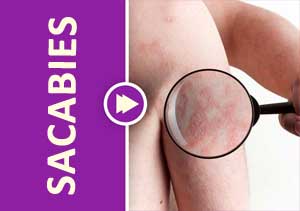- Home
- Editorial
- News
- Practice Guidelines
- Anesthesiology Guidelines
- Cancer Guidelines
- Cardiac Sciences Guidelines
- Critical Care Guidelines
- Dentistry Guidelines
- Dermatology Guidelines
- Diabetes and Endo Guidelines
- Diagnostics Guidelines
- ENT Guidelines
- Featured Practice Guidelines
- Gastroenterology Guidelines
- Geriatrics Guidelines
- Medicine Guidelines
- Nephrology Guidelines
- Neurosciences Guidelines
- Obs and Gynae Guidelines
- Ophthalmology Guidelines
- Orthopaedics Guidelines
- Paediatrics Guidelines
- Psychiatry Guidelines
- Pulmonology Guidelines
- Radiology Guidelines
- Surgery Guidelines
- Urology Guidelines
Oral ivermectin safe, effective in scabies in children weighing less than 15 Kg

France: Oral ivermectin is safe and effective for the treatment of scabies in infants and children weighing < 15 kg, finds a recent study published in the British Journal of Dermatology.
According to WHO, scabies is a parasitic infestation caused by Sarcoptes scabiei var hominis. The microscopic mite burrows into the skin and lays eggs, eventually triggering a host immune response that leads to intense itching and rash.
Scabies occurs frequently in infants and children. Till now, only tropical treatments have been approved in infants and some of them are poorly tolerated. Oral ivermectin, although approved for the treatment of scabies in several countries, its use in infants and children weighing < 15 kg is off label.
Franck Boralevi, Bordeaux University Hospital, Bordeaux, France, and colleagues conducted the study to assess the safety of ivermectin in infants and young children and to collect data on ivermectin efficacy in these age groups.
The study involved 170 infants and children aged 1-64 months from dermatology and paediatric dermatology departments of 28 French centres between July 2012 and November 2015. The participants had a bodyweight of 4-14·5 kg and were treated with oral ivermectin. Physicians treating the children were asked to send back a completed standardized and anonymous questionnaire, and the data were analysed.
The mean dose received was 223 μg kg-1 and 89% of the patients received a systematic second dose. Concomitant topical treatment was administered to 73% of patients.
Key findings include:
- Adverse events were reported in seven patients (4%) and were not severe.
- At the follow-up visit, 139 (85%) patients had achieved healing.
- Factors significantly associated with healing were an ivermectin dose > 200 μg kg-1, and a delay between those two doses of < 10 days.
"Our findings suggest the safety and efficacy of ivermectin for the treatment of scabies in infants and young children," concluded the authors.
More Information: "Ivermectin safety in infants and children under 15 kg treated for scabies: a multicentric observational study" published in the British Journal of Dermatology.
DOI: https://doi.org/10.1111/bjd.18369
Journal Information: British Journal of Dermatology

Disclaimer: This site is primarily intended for healthcare professionals. Any content/information on this website does not replace the advice of medical and/or health professionals and should not be construed as medical/diagnostic advice/endorsement or prescription. Use of this site is subject to our terms of use, privacy policy, advertisement policy. © 2020 Minerva Medical Treatment Pvt Ltd